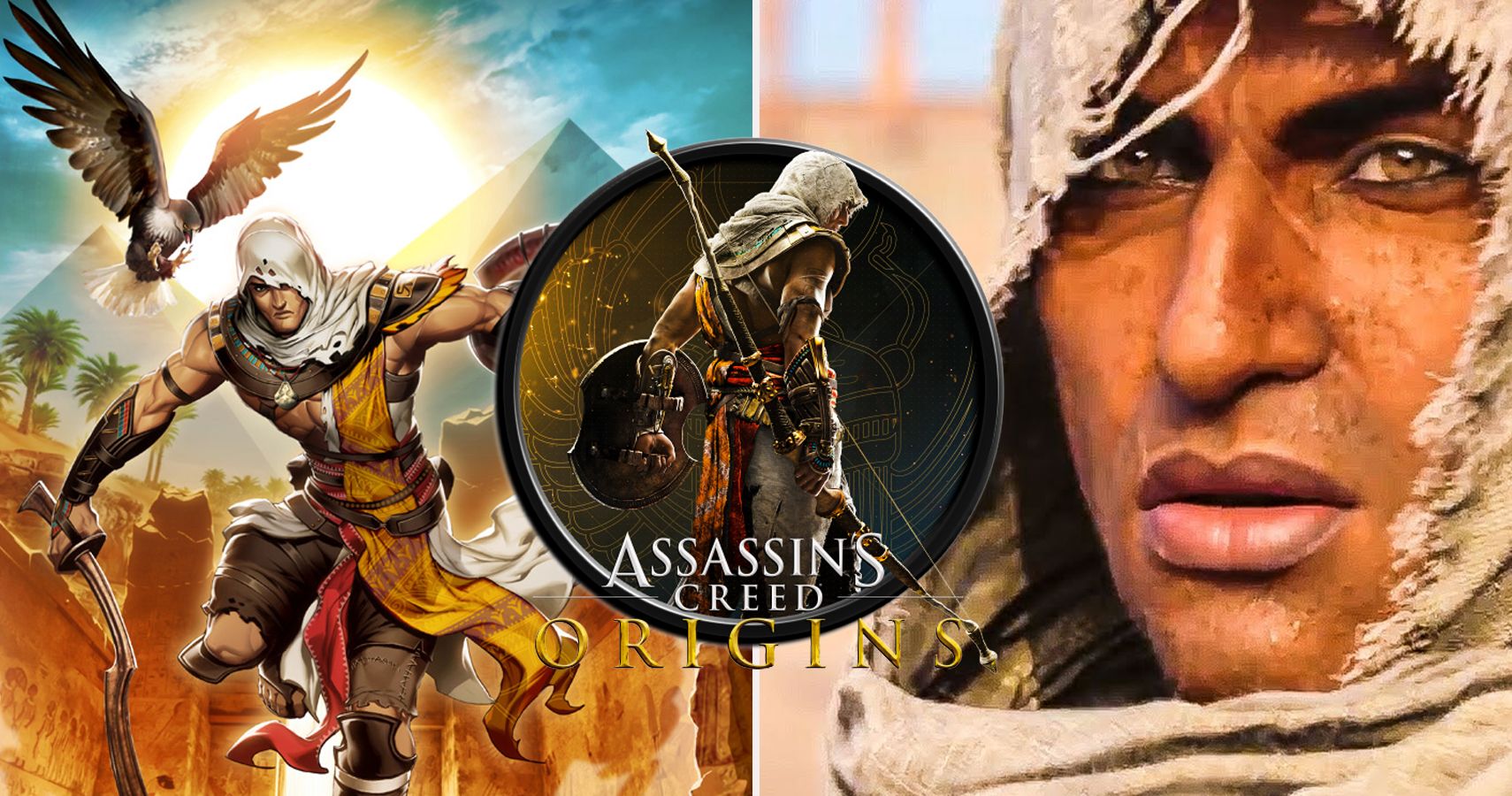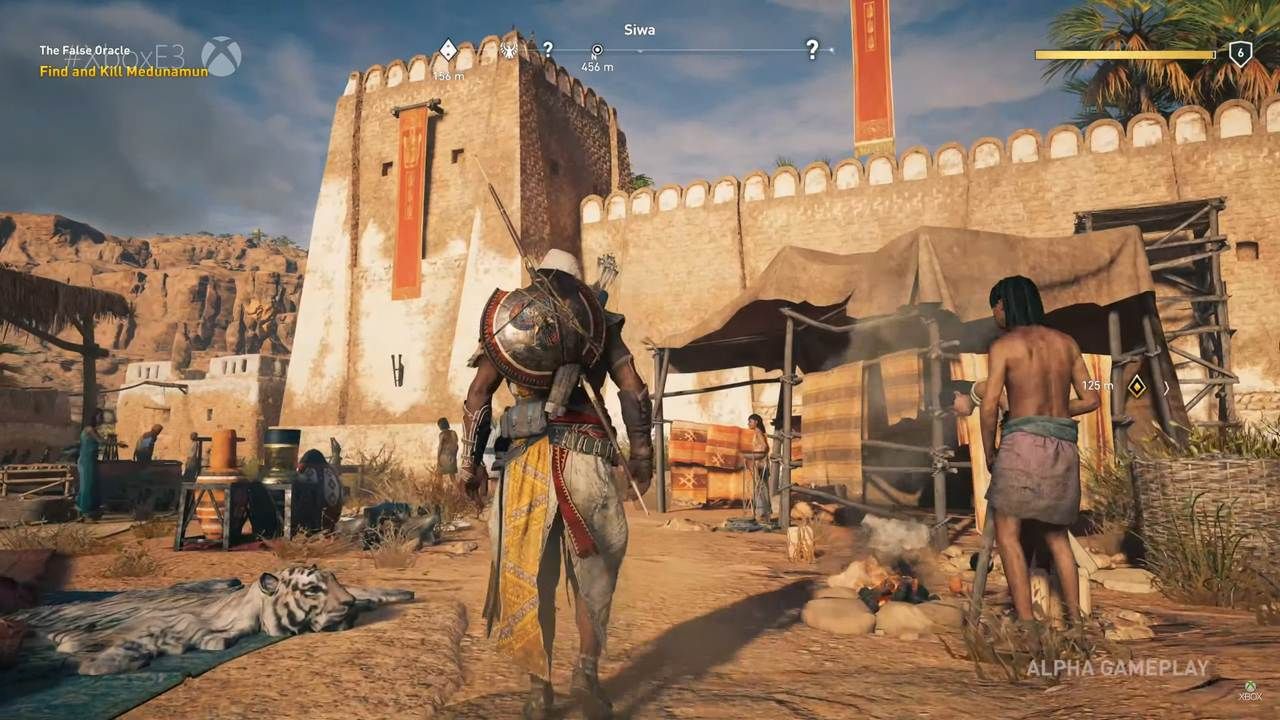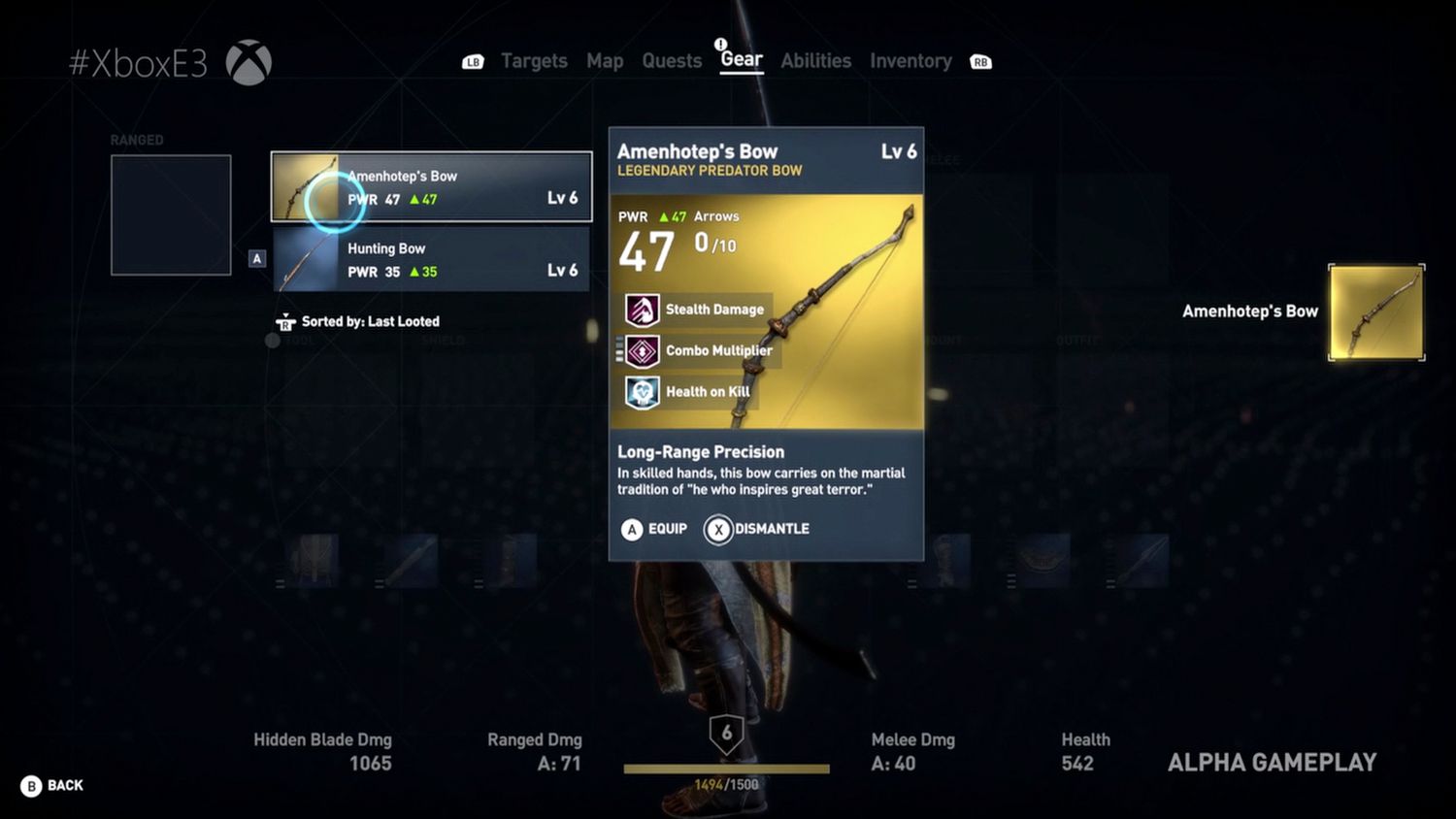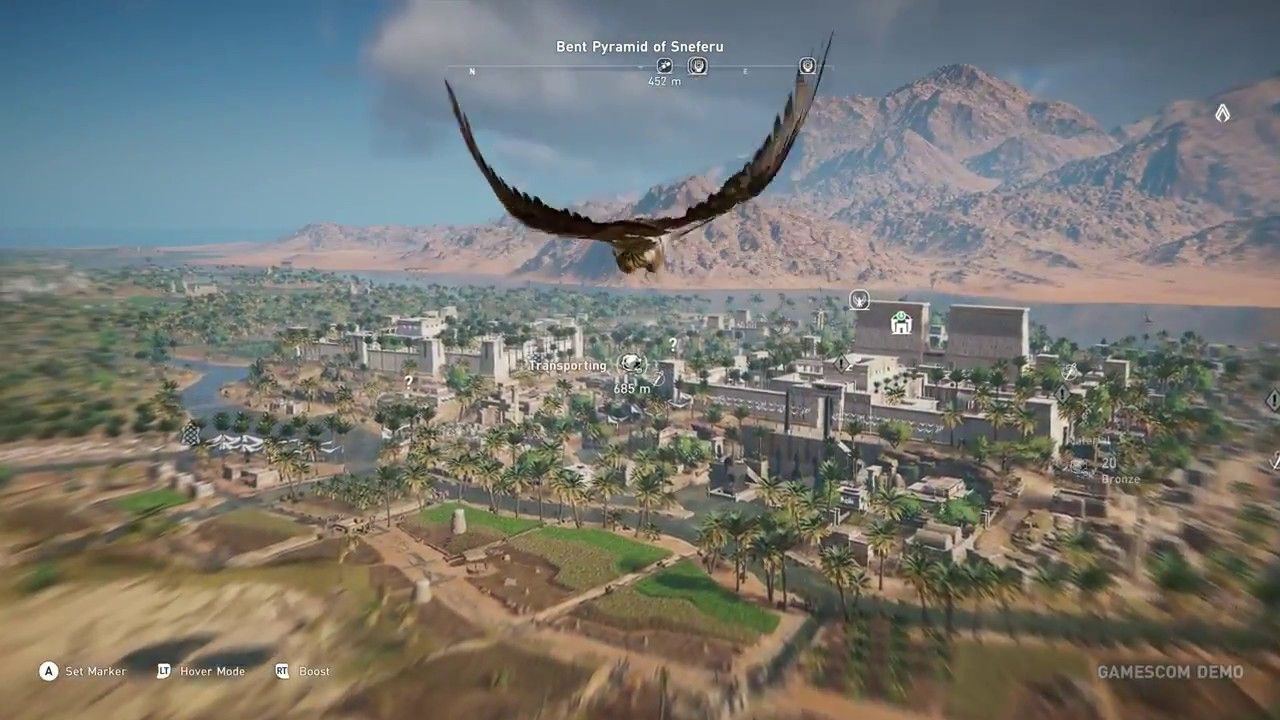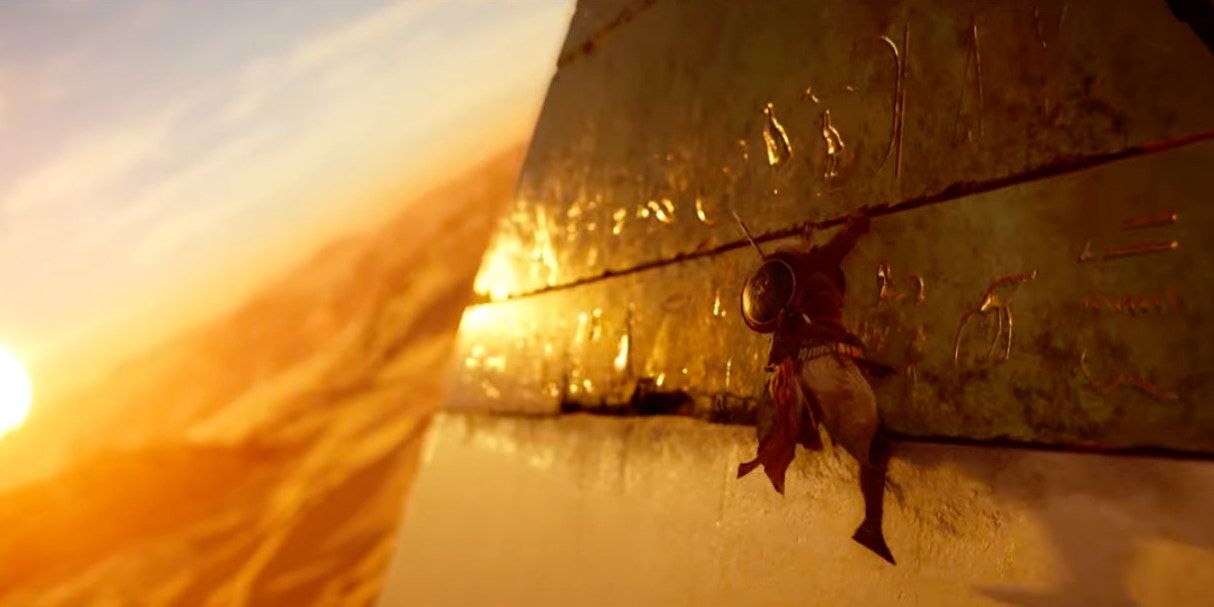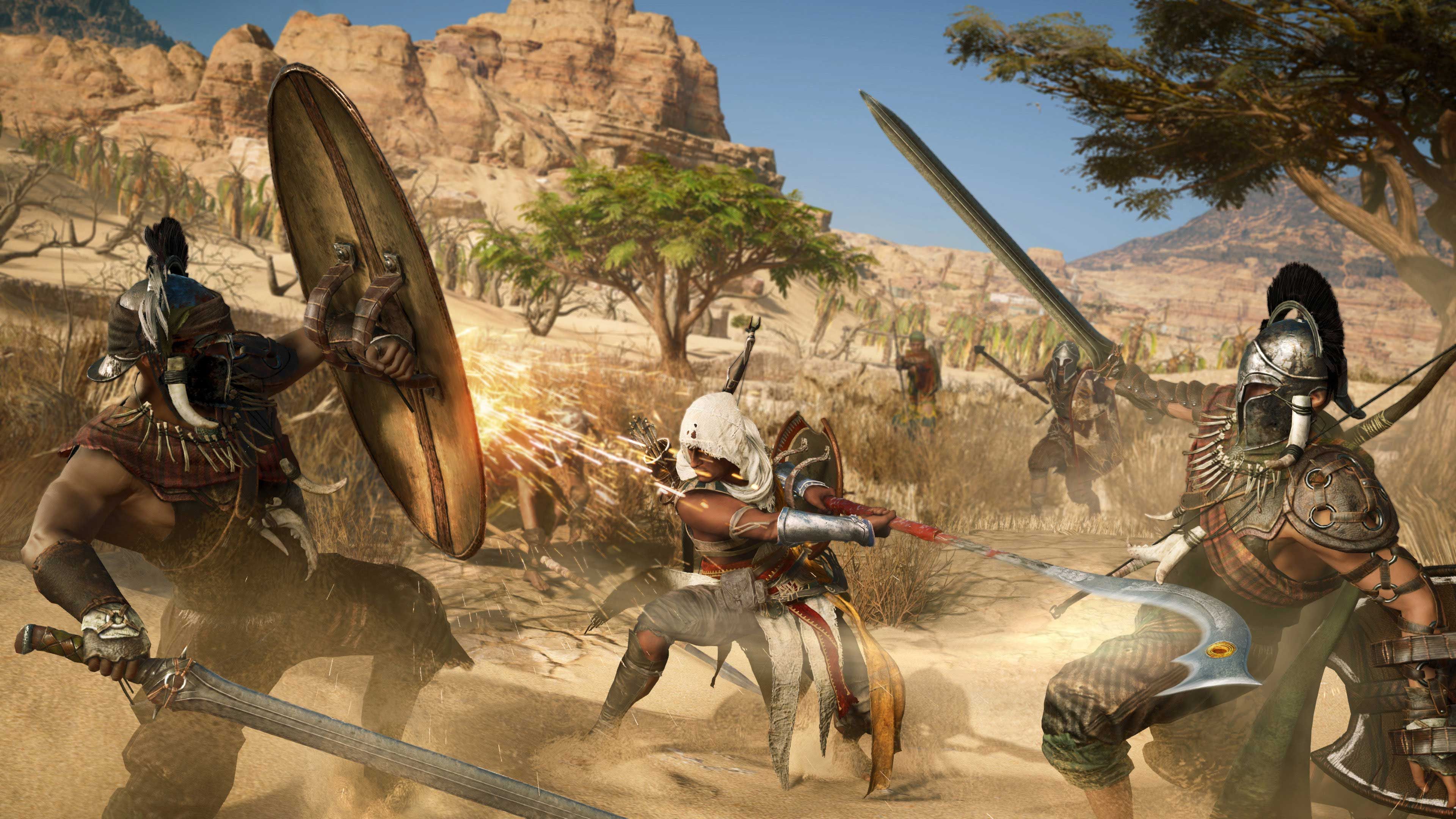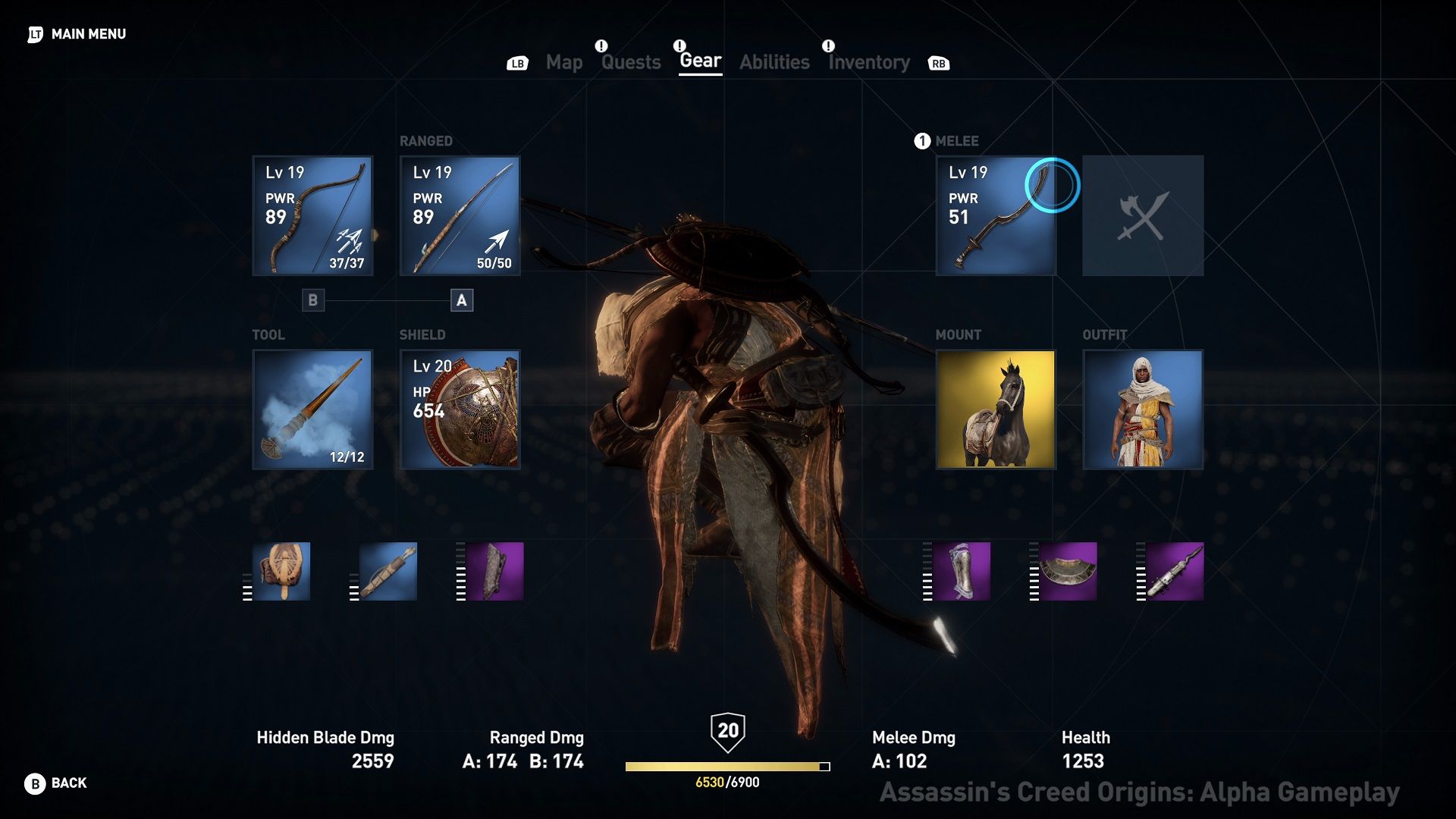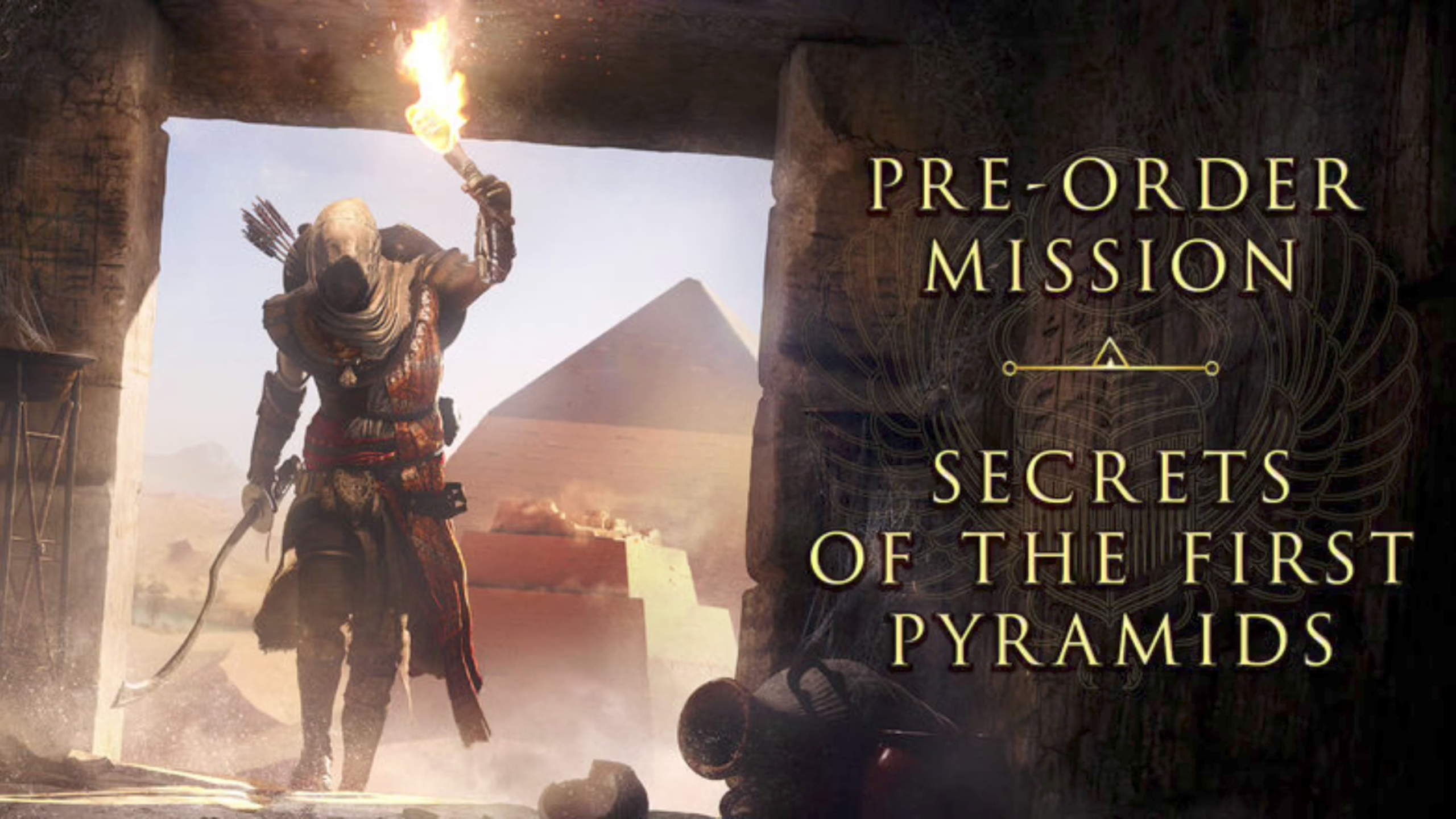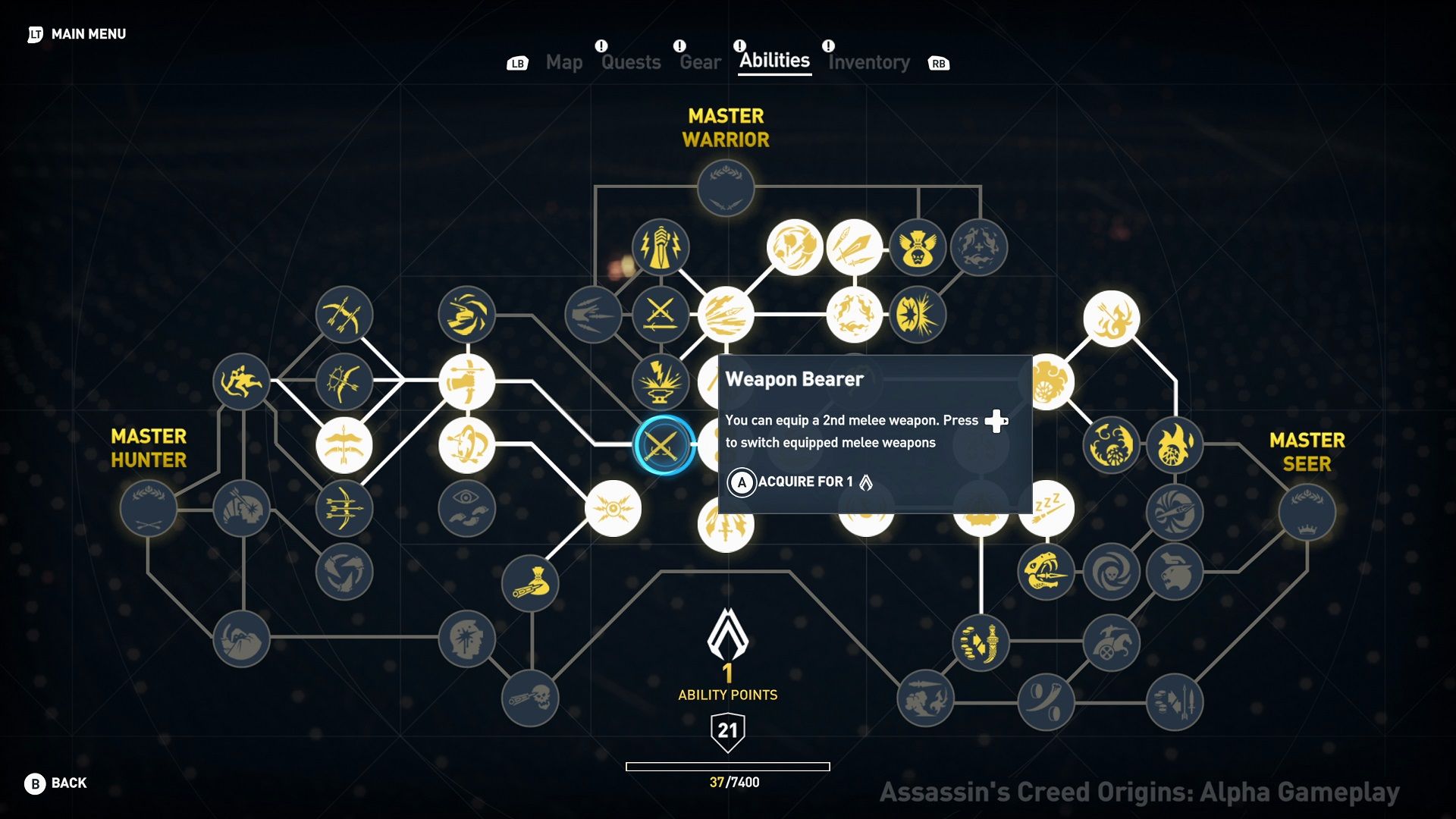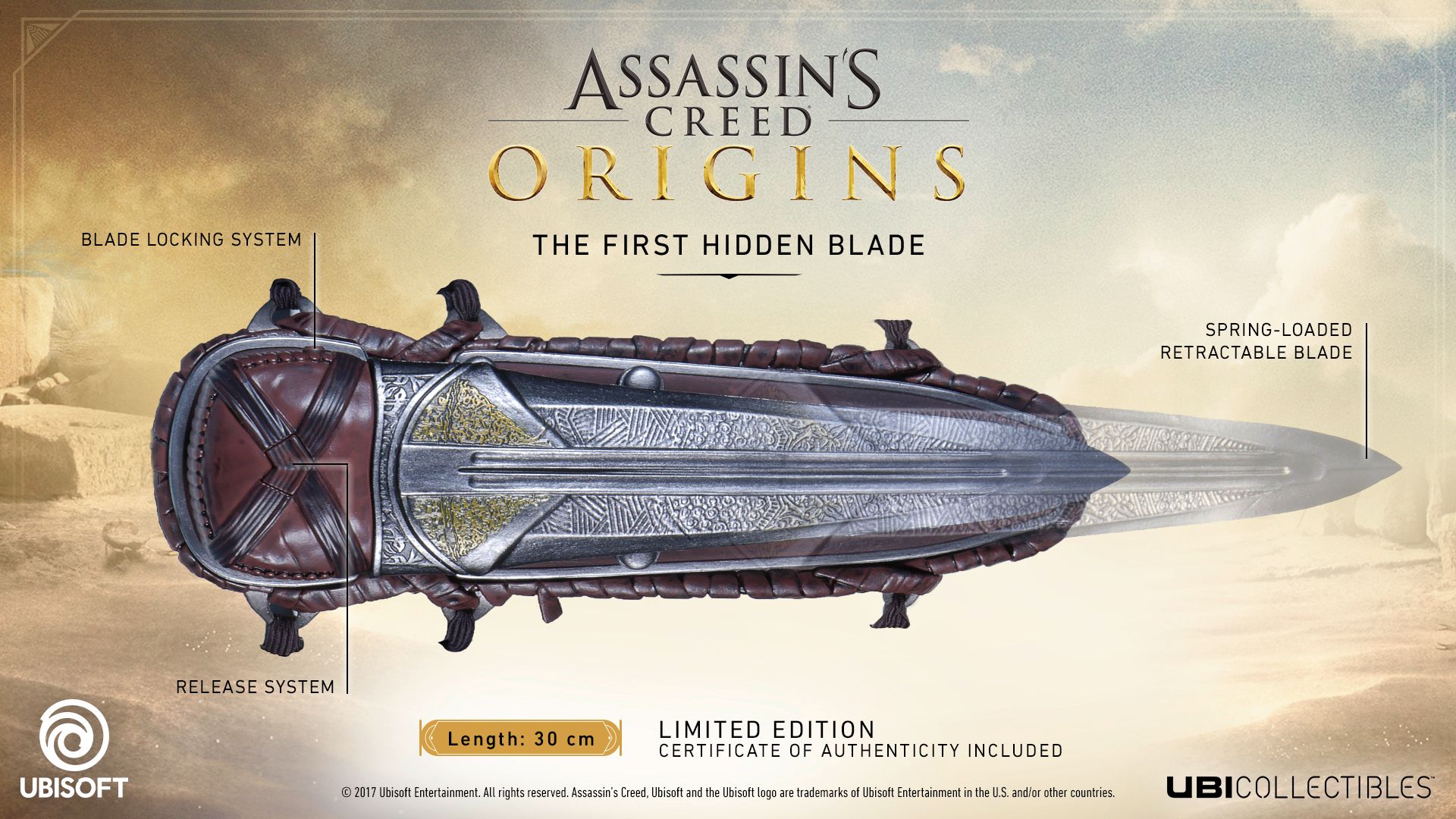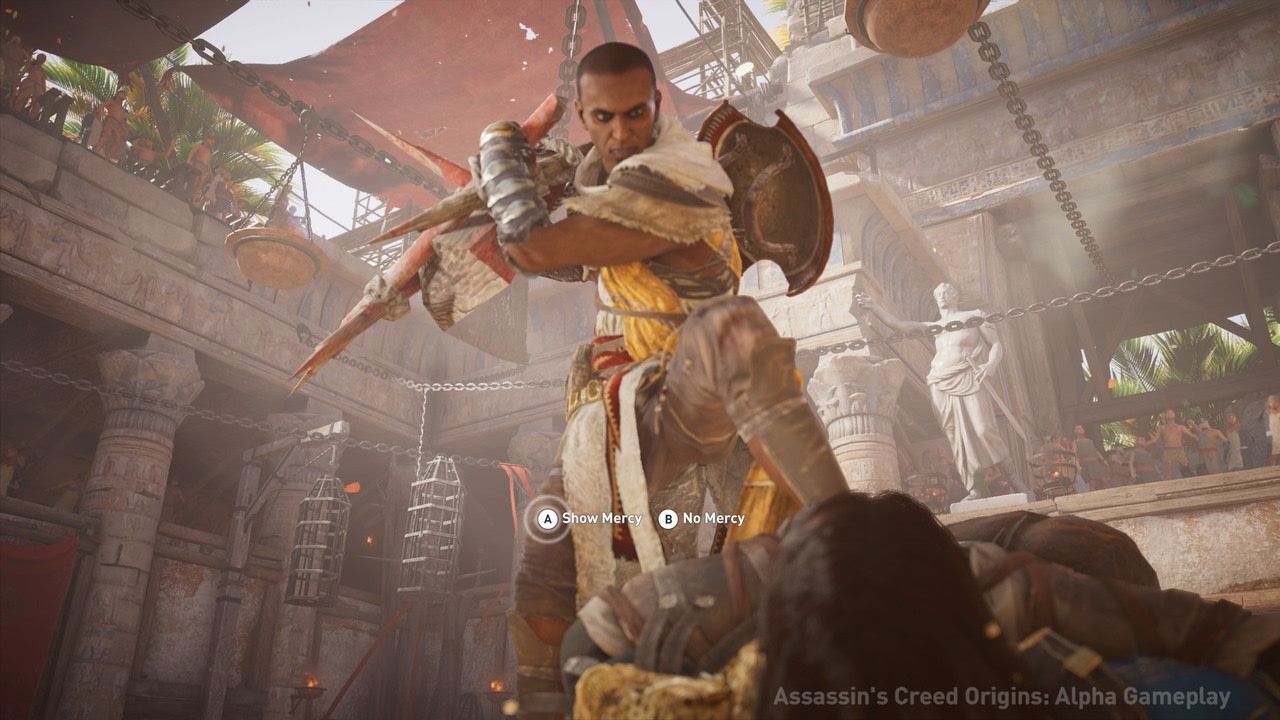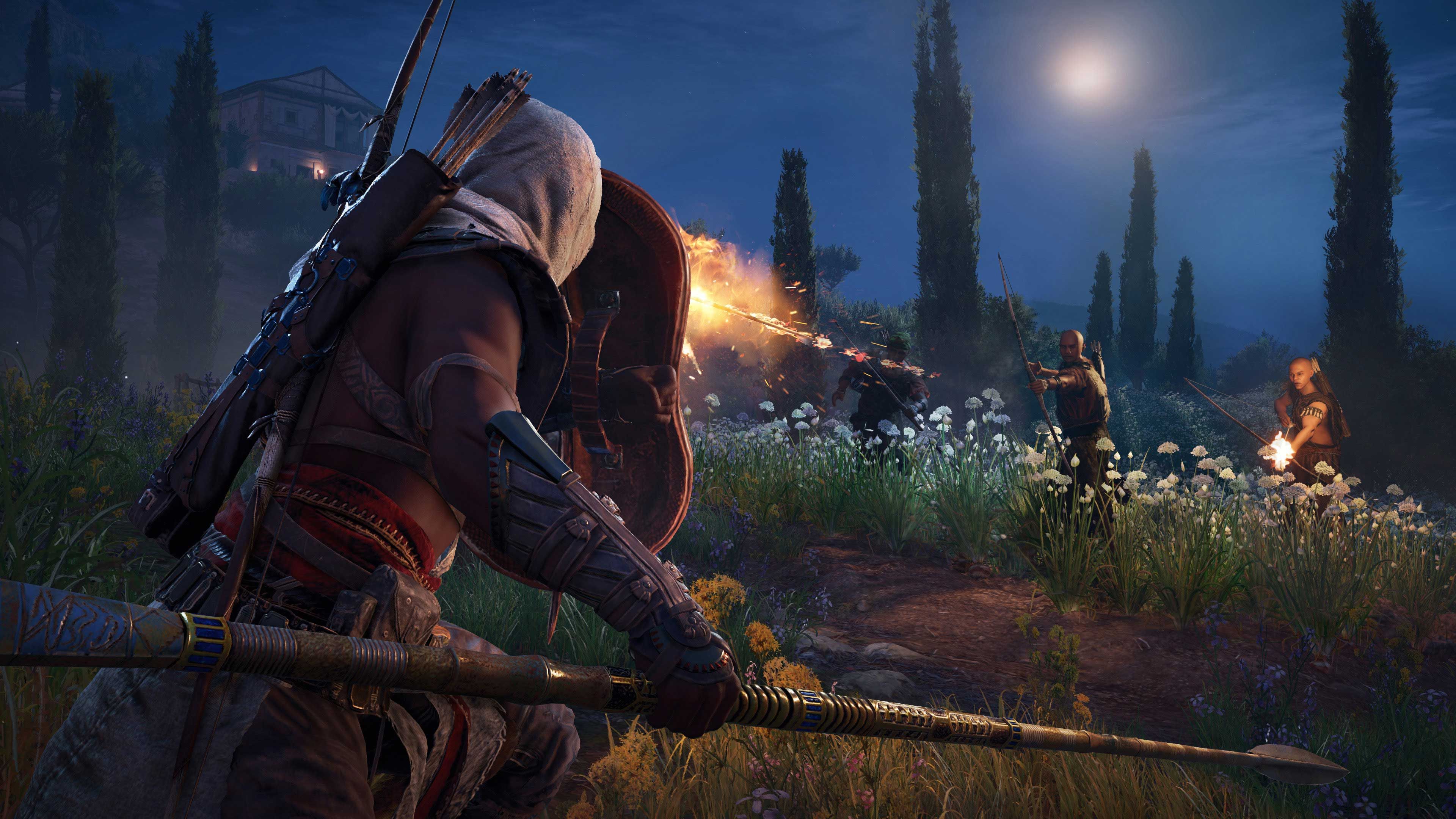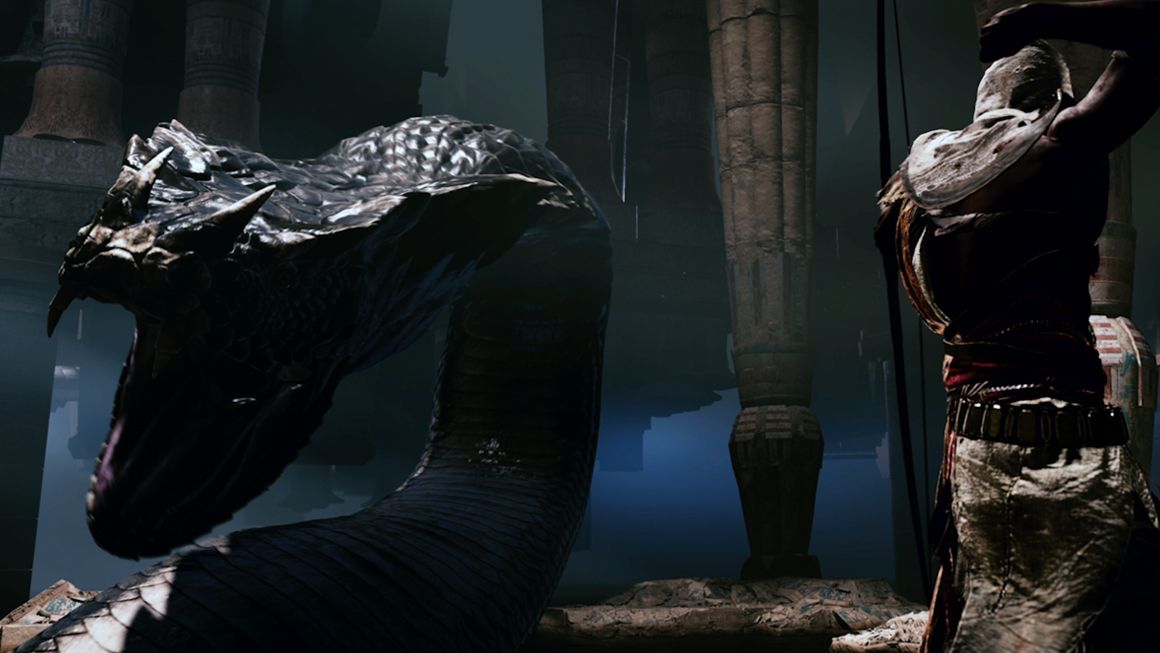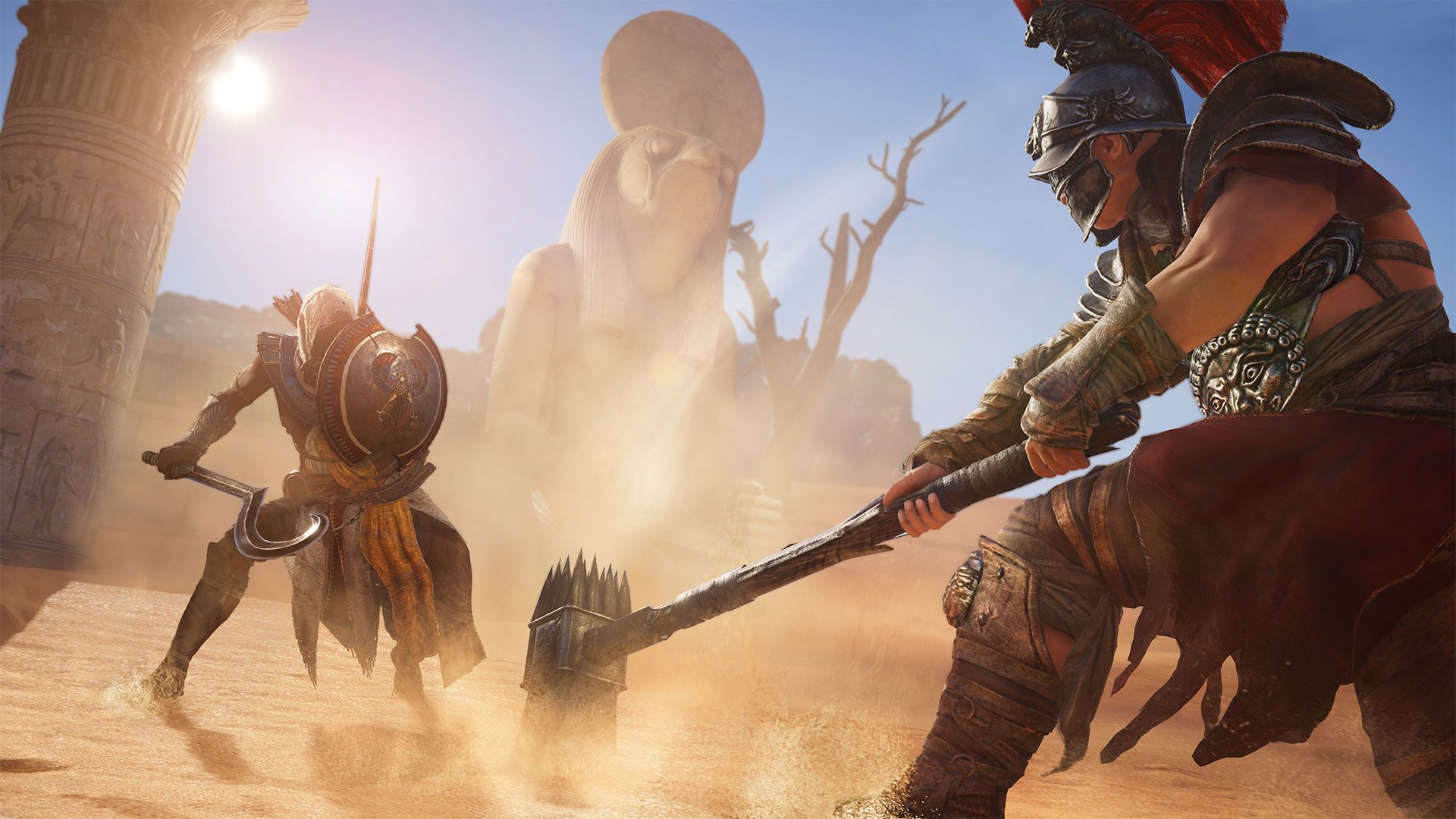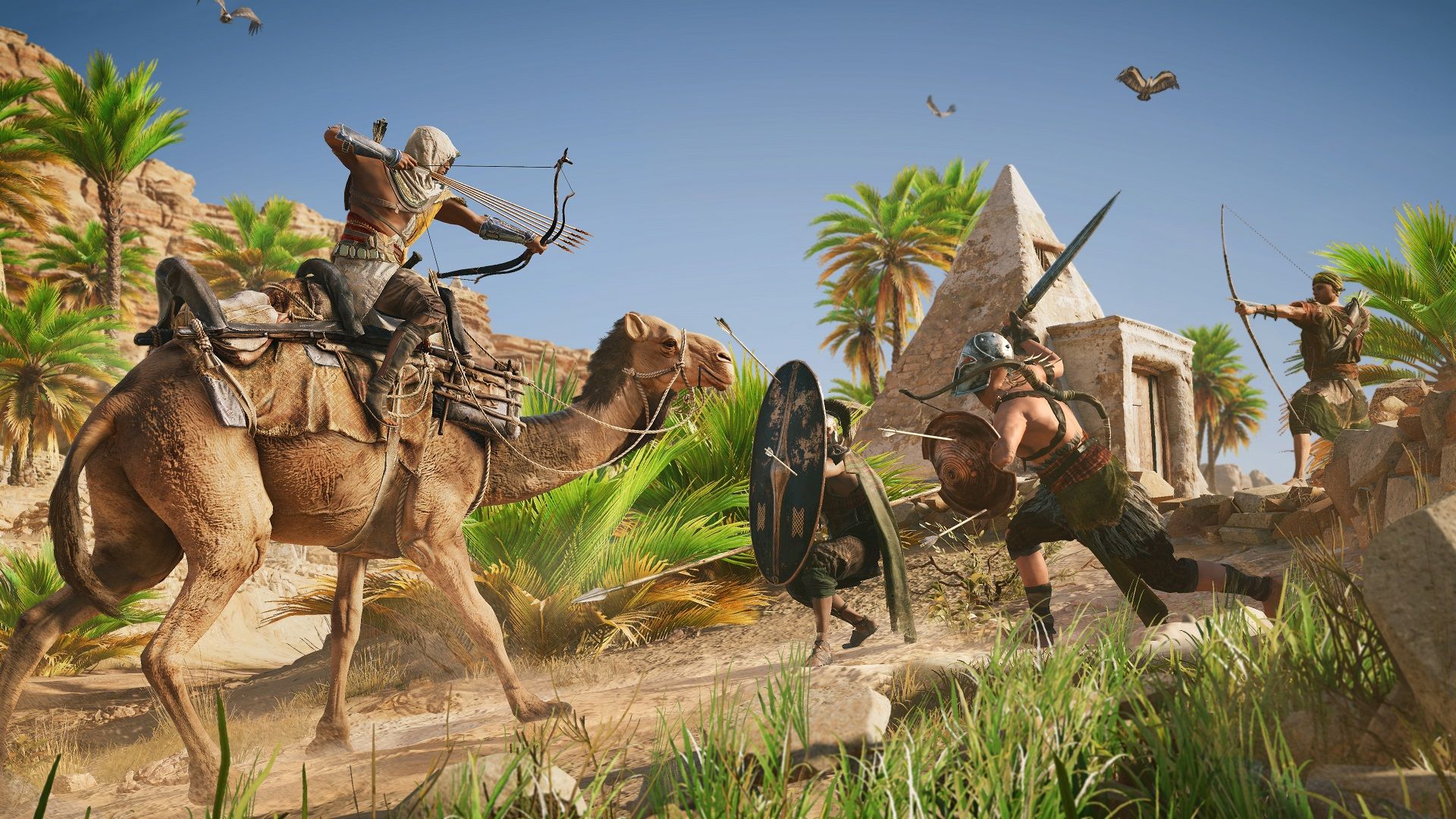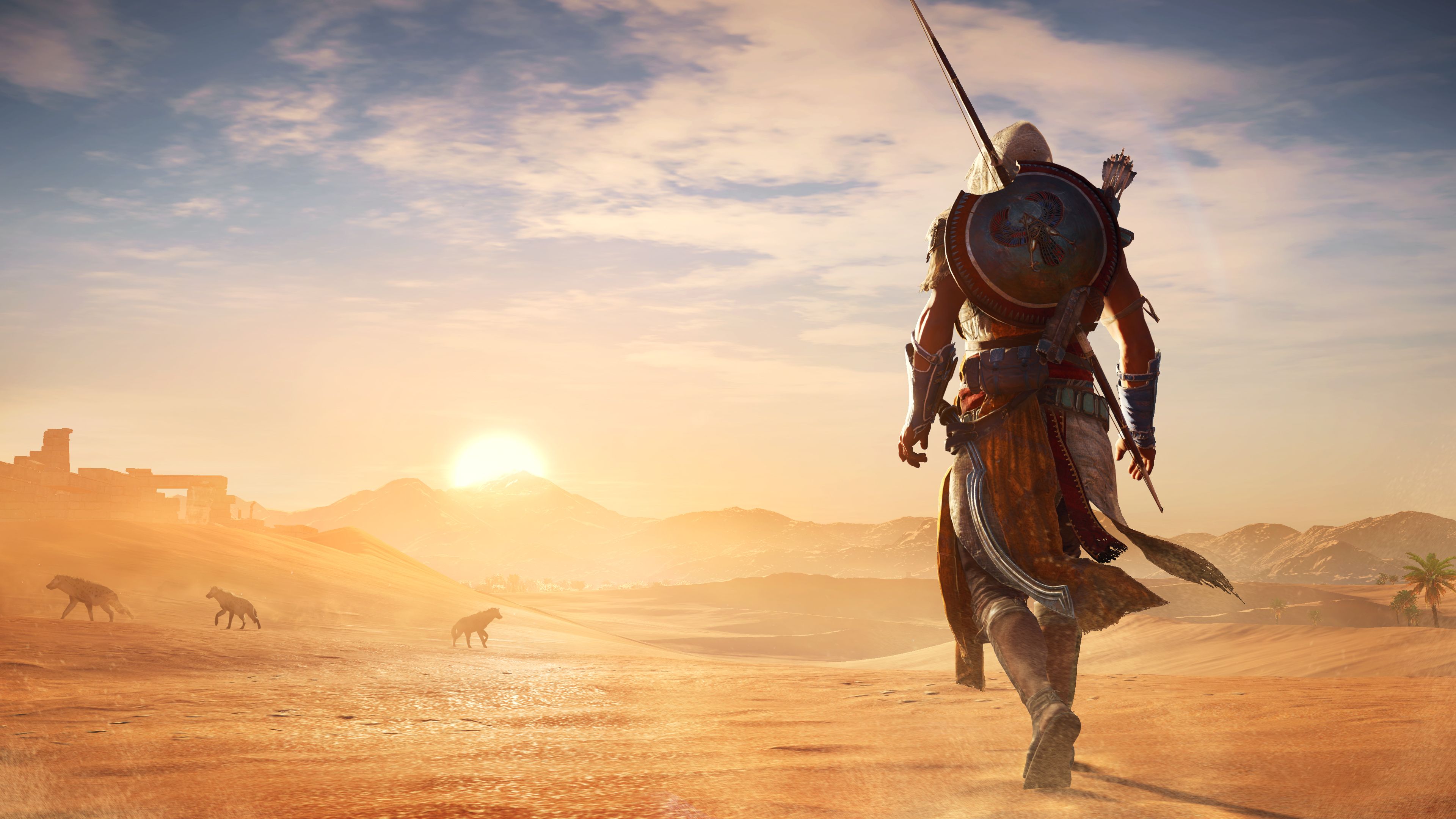In 2016, Ubisoft’s flagship Assassin’s Creed series took one year off after seven consecutive years of releasing mainline entries. Much of this was due to the lobbied criticism of Assassin’s Creed: Unity in 2014 and Syndicate in 2015, which released with a myriad of technical issues and a slow launch, respectively. Feeling the onset of franchise fatigue and repetition in gameplay, the developer/publisher stepped away in order to allow Watch Dogs 2 to take holiday sales prominence. Despite this, Ubisoft still managed to release an Assassin’s Creed film that was met with poor reception from critics, audiences, and fans of the games alike.
Now more than ever, Assassin’s Creed needs a game-changing release to win back the hearts of its impassioned fan base. From the outset, the next installment appeared poised to do just that with the charge being led by the same team that created the acclaimed Assassin’s Creed IV: Black Flag. In the new game, Origins, players take control of the Medjay Bayek, during Ptolemaic Egypt. Ubisoft has been touting their return to the franchise as a major turning point for the series. As with all turning points, there can be good, bad, and deeply unsatisfying points of contention.
The following list serves as an overview of the many reasons why Assassin’s Creed: Origins, the tenth main iteration in the franchise will be truly terrible. Much of this reasoning concerns Ubisoft stripping away the Assassin’s Creed franchise’s identity in the following ways…
15 Ubisoft Is Too Bad At Level Design For This
Since their start in 2007, the Assassin’s Creed series has consistently featured a mini-map to help guide the players towards their objective. In the game, however, the only way in which the mini-map or the menu map could be seen would be to unlock the different vantage points in the region. The best way to spot these vantage points was to check if there was an eagle circling that high point in the world. While this element of unlocking the map is still in play, by removing the mini-map entirely, Assassin’s Creed: Origins takes away from players’ enjoyment of finding previously visited locations with ease. The mini-map in the corner makes it far easier for players to orient themselves with objective markers as opposed to navigating a menu.
14 They Are Focusing Too Much On Crafting
In Assassin’s Creed: Origins, there is a new emphasis being placed on collecting loot, which is broken down a number of ways. The primary basis of it, however, is to craft better gear. To do this, players will need to collect a variety of animal goods and resources found scattered throughout the world. Unfortunately for players, this crafting is essential to completing the story. This is because players may no longer hope to beat an enemy simply on skill alone. Now, they will be leveled within range of the character and have the sufficient gear (which is only craft-able in higher levels) in order to win the fight. While it makes sense that better gear equals a better chance of success, crafting this gear by finding the resources is an exercise in tedium in the Assassin’s Creed universe.
13 Drone Simulator: Eagle Edition
While many Ubisoft games use the familiar ‘tower’ trope to unlock the map, Assassin’s Creed: Origins is using another in a surprising way: drones. The idea of having a character use a drone to mark or even attack unsuspecting targets has become a staple of Ubisoft-developed games. Some examples include: Splinter-Cell: Blacklist, Ghost Recon: Wildlands, and Far Cry: Primal to name only a few. In the case of the Tom Clancy games, it is literally a modern drone that players can control. In Assassin’s Creed: Origins, players will be using Bayek’s pet eagle, Senu, to fly overhead of enemies as opposed to the series colour-coded ‘eagle vision’ of the past. While an interesting idea, one can’t help shake the feeling that Ubisoft is conforming to their past development success rather than staying true to the series’ roots.
12 Egypt: Massive And Empty
When you have a large, open world game, it is equally important to ensure that there are a good degree of activities to commit your time to. Of course, there is the main story, which typically serves as a driving force behind the experience. There are also numerous side-quests that offer unique perspectives on the game world’s lore. In Assassin’s Creed: Origins, Ubisoft has said there is a lot to do, but there are also vast stretches of this game that are just desert. This is not to say there is nothing to do in the game, but the fact that repetitive environments coupled with lacking a mini-map make for a very dull open-world experience. There will be settlements, communities, and vast stretches of water, but will traversal truly be that interesting?
11 Less Stealth, More Combat
Every gameplay video featured online has emphasized one thing above all else: the re-vamped combat. From a stealth mission that fails and transitions to combat all the way up to full gladiatorial gameplay, it seems there is less and less emphasis on the series’ roots. It is excellent that combat is improving after its clunky earlier iterations, but not in that it appears to be taking away from the solid stealth gameplay. As such, it is hard to reconcile going on the offensive by choice in a title that is all about creativity and planning within a stealth environment. Will there even be stealth-only segments in the game? Hopefully, the skill trees do not completely dismiss an entire play-style that gave the series its day in the sun.
10 Game Of Loot
Continuing the fetch-quest trend in many modern RPGs to collect as much loot as possible, gathering necessary supplies is essential for survival in Assassin’s Creed: Origins. Unfortunately, initial reports make it out that there is an over-the-top emphasis on the collection of loot and/or materials. Much of the game is tied into a new experience-based progression system with a substantial amount of loot hidden throughout the world. This is troubling because it does not keep in line with the spirit of the franchise. Instead of taking on a massive adventure, the game presents complicated loot systems more welcome in MMORPGs. Too much loot in the wrong game can break the role-play illusion down into a mess of tedium and regret: two unwelcome qualities when trying to enjoy a quality experience.
9 Rampant Micro-transactions
When it comes to Ubisoft games, if there’s crafting, loot, and the Assassin’s Creed brand, there are invariably micro-transactions. At this point, their existence is far from a surprise, but is indicative of the continued business practices of the company. Generally, games are doing a better job than a couple years ago when Unity was released. Still, the mentality of players hoping to buy better gear so they can see more of the game earlier on is a main driving force behind the transactions. Unfortunately, these interfaces can make even the most pristine menus annoyingly stressful to deal with. As is the case with many games, micro-transactions often feel like cheats for players who are unwilling to work towards completing their goal, whether it be crafting a new blade, or better armour.
8 Overused Skill-Trees
Many Ubisoft games feature progression-based skill-trees, meaning that accrued experience points can be spent to upgrade your character in the game. Typically, these skills have been organized into different ‘trees’ that are based on particular themes. For example, Watch Dogs divides its skills in the menu based upon, combat, driving, crafting, and hacking. Each of those trees will, in turn, have several unlockable abilities to give players an edge in the game. This is typical of many RPGs. As the Assassin’s Creed series has continued to evolve in a decade, these progression mechanics have only gotten more and more advanced. In Origins, players will be given a large array of options to customize their skills. While player-choice is a noble quality for games, it is restrictive in this case as must unlock many skills that they were granted in previous AC titles due to the new level progression system.
7 DIY Hidden Blades
Since the original trailer for the first Assassin’s Creed in 2006, the hidden blade has been a main staple of the series. In each game, it has been a weapon automatically fitted to the player as a means of stealthily assassinating targets. It has always been the preferred weapon by many players because of its ability to kill any unaware target, save for scripted boss encounters in many of the games’ finales. In Assassin’s Creed: Origins, the hidden blade is something that is still used, but, because of the progression-based leveling system, there is a catch. In order to stealthily assassinate the toughest enemies in the game, players will be required to scour the world, hunting for the resources to craft the ultimate hidden blade. By doing this, the developers are artificially extending the length of the game for something that used to be commonplace in the series.
6 A Leveling Experience
After many games in this long-running series, the quest and leveling system is being completely revitalized. Now, players will be granted experience points for each quest completed, which will contribute to their level and allow them access to better gear. Of course, this means that missions and enemies are also leveled in the interest of a gradual character progression. This is a subversion of the original vision for the Assassin’s Creed series. When it comes to levels and gear, this has been introduced gradually over time. With that being said, such a dramatic and central hard turn into non-linear level-based progression both opens up, yet also muddles down the experience of the game. Sometimes, too much choice takes away from the narrative focus emphasized in the past, while also blocking off large parts of the game until its systems deem players ready.
5 Goodbye, Replay-ability!
Many open world games featuring a quest-based structure are often left to the wayside when it comes to replaying previously completed missions. For a long time, Grand Theft Auto was like this until the fifth game came around with an option to not only replay past levels, but also complete them to 100%. One of the mainstays of the Assassin’s Creed series has always been being able to replay past the past memory sequences. With Origins, it is less likely of this being a reality. Everything about this game feeds into the complex progression system that dictates, crafting, gear level, enemy level, play style, and upgrades. It would be excellent if the game does allow for replaying these missions with better gear, but at this point, it is misguided to get one’s hopes up even a little.
4 Unscripted Boss Battles
While the Assassin’s Creed games have always featured a variety of boss encounters, they have at least enjoyed some bearing on the side of realism. Such encounters ranged from the vicious Cesare Borgia in Brotherhood to the deadly Man of War ships in Black Flag. Others, such as Al Mualim in the original, feature more on the fantastical side due to the pieces of Eden. In the reveal of Assassin’s Creed: Origins, there is a giant snake that is poised to attack Bayek. Without any context given, it is representational of a fantastical turn of events from the series’ more historical roots. To add insult to injury, the other boss encounters showcased exist in the world, independent of the typical scripted events found in past AC titles. This drastic shift by going full open-world hinders the effectiveness of the boss encounters in the story as a whole.
3 Dark Souls Combat
In the original Assassin’s Creed, combat was one of the weaknesses of the game. It was clunky in its execution with many enemies that waited to attack. Eventually, the combat smoothed to mirror those of the Batman: Arkham series with one button meant for attack and one meant to counter the attack of oncoming enemies. The system worked quite well and offered many unique challenges with more powerful enemies requiring a variation of the technique. In Assassin’s Creed: Origins, enemies are now leveled and will be even more powerful than before, meaning players must be a certain level themselves to take them on. On top of that, you no longer have an attack and counter-attack system at play. Instead, it is based upon Dark Souls: light and heavy attacks are mixed with ranged bow attacks, and evened out by dodge rolls, making the identity of this series all the foggier.
2 Stealing From The Best
When Pablo Picasso said, “Good artists copy, great artists steal,” he knew what he was talking about. It has taken very little time for Ubisoft to learn this after taking many concepts of recently popular and acclaimed games and fitted them into Assassin’s Creed: Origins. In particular, the aforementioned Dark Souls-styled combat comes to mind…but what else? Crafting for survival in an open-world game is reminiscent of the recent Horizon: Zero Dawn, while the vast, non-linear progression and mission structure is easily comparable to The Witcher III: Wild Hunt. Meanwhile, the accessibility of the world with the ability to climb anything is taken right from The Legend of Zelda: Breath of the Wild. Unfortunately, this casts Origins as a glorified amalgamation of past successful franchises, without properly innovating the series in a meaningful way. Hopefully, the story will be overhauled, as it may be the game’s saving grace…
1 No End In Sight
Assassin’s Creed: Origins is retreading old ground in the birthplace of the assassin brotherhood. There appears to be a strict emphasis placed on this being a complete prequel to all other time-periods in the series’ lore. While this is fine, one can’t help but question why Ubisoft is making this drastic decision to ‘go back’ in its tenth main entry…and after 10 years of successful games. The issue is not the prequel decision so much as it is the fact that, with each release, the games were getting closer and closer to present-day in their settings. This is the first time the series has jumped further back to a whole other era. It seemed inevitable that Assassin’s Creed was going to culminate once it got into our time, but it seems now that the series is not any closer to reaching its ultimate conclusion.

